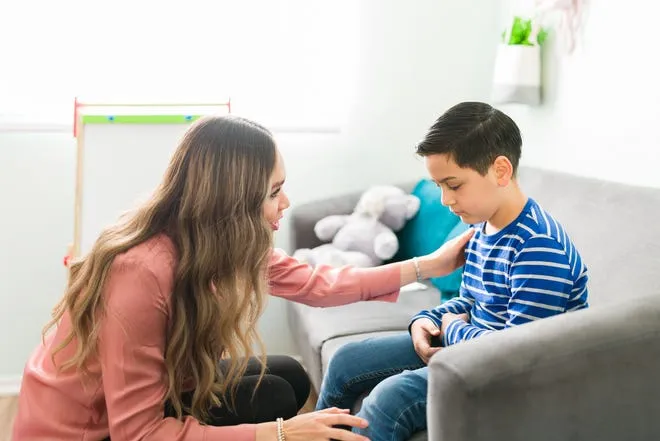Nurturing Mental Health in Children A Guide by Revolve Psychology
The importance of mental health in children cannot be overstated. As children grow and develop, their emotional well-being plays a vital role in shaping their personality, cognitive abilities, and social skills. At Revolve Psychology, we believe that fostering a supportive environment for children’s mental health is key to helping them reach their full potential. This guest post explores the challenges, symptoms, and strategies for promoting mental health in children.
Understanding the Importance of Mental Health in Children
Mental health encompasses a child’s emotional, psychological, and social well-being. It affects how they think, feel, and behave in everyday life. Healthy mental development enables children to:
- Develop resilience to cope with challenges.
- Build strong relationships with peers and family.
- Excel academically and socially.
- Express emotions in constructive ways.
However, mental health challenges in children can often go unnoticed, as they may manifest in subtle or unexpected ways. Recognizing these signs early can significantly improve outcomes.
Common Mental Health Challenges in Children
- Anxiety Disorders
- Symptoms: Excessive worry, restlessness, difficulty concentrating.
- Triggers: School pressure, social interactions, or family issues.
- Depression
- Symptoms: Persistent sadness, withdrawal from activities, changes in appetite or sleep patterns.
- Impact: Affects self-esteem and can lead to academic struggles.
- ADHD (Attention-Deficit/Hyperactivity Disorder)
- Symptoms: Inattention, hyperactivity, impulsivity.
- Challenges: Difficulty in school, social interactions, and completing tasks.
- Behavioral Disorders
- Symptoms: Aggression, defiance, temper tantrums.
- Root Causes: Often linked to environmental or genetic factors.
- Autism Spectrum Disorder (ASD)
- Symptoms: Difficulty with communication and social interaction, repetitive behaviors.
- Needs: Tailored interventions and support.
Signs to Watch For
Parents, caregivers, and educators should be vigilant for signs of mental health struggles in children. These may include:
- Changes in behavior or mood.
- Decline in academic performance.
- Difficulty sleeping or frequent nightmares.
- Social withdrawal or loss of interest in activities.
- Physical complaints like headaches or stomachaches without a clear cause.
If any of these signs persist, seeking professional help from organizations like Revolve Psychology can provide the necessary support and interventions.
Promoting Mental Well-Being in Children
- Open Communication
- Encourage children to express their feelings without fear of judgment.
- Listen actively and validate their emotions.
- Routine and Stability
- Maintain consistent schedules for meals, bedtime, and activities.
- Predictability provides children with a sense of security.
- Positive Reinforcement
- Celebrate achievements, no matter how small.
- Provide constructive feedback to help them grow.
- Healthy Lifestyle
- Ensure a balanced diet, regular physical activity, and adequate sleep.
- Limit screen time and encourage outdoor play.
- Teach Coping Skills
- Introduce relaxation techniques like deep breathing or mindfulness.
- Encourage problem-solving and decision-making skills.
Role of Parents and Caregivers
Parents and caregivers play a pivotal role in shaping a child’s mental health. Here’s how you can make a difference:
- Be a Role Model: Demonstrate healthy emotional regulation and coping mechanisms.
- Foster a Supportive Environment: Create a home where children feel loved and valued.
- Educate Yourself: Learn about child development and mental health to better understand your child’s needs.
- Seek Help When Needed: Consult professionals like those at Revolve Psychology when challenges arise.
How Revolve Psychology Supports Children’s Mental Health
At Revolve Psychology, we specialize in providing compassionate and evidence-based mental health services tailored to children. Our approach includes:
- Comprehensive Assessments
- Identifying the root causes of mental health challenges.
- Developing individualized care plans.
- Therapeutic Interventions
- Play therapy, cognitive-behavioral therapy (CBT), and family counseling.
- Techniques designed to address specific issues and promote resilience.
- Parental Guidance
- Equipping parents with tools and strategies to support their children.
- Facilitating open lines of communication between children and caregivers.
- School Collaboration
- Working with educators to create supportive learning environments.
- Addressing academic and social challenges in school settings.
Breaking the Stigma
One of the most significant barriers to addressing mental health in children is the stigma surrounding it. Revolve Psychology is committed to breaking this stigma by:
- Raising awareness through community programs and workshops.
- Educating families about the importance of mental health.
- Encouraging open discussions about emotional well-being.
Conclusion
Fostering mental health in children is a shared responsibility that requires the collaboration of parents, educators, and mental health professionals. By prioritizing emotional well-being, we can help children build the resilience and skills they need to navigate life’s challenges successfully. At Revolve Psychology, our mission is to provide the support and resources families need to ensure their children thrive.
If you have concerns about your child’s mental health or want to learn more about our services, contact Revolve Psychology today. Together, we can make a difference in your child’s life.











Post Comment